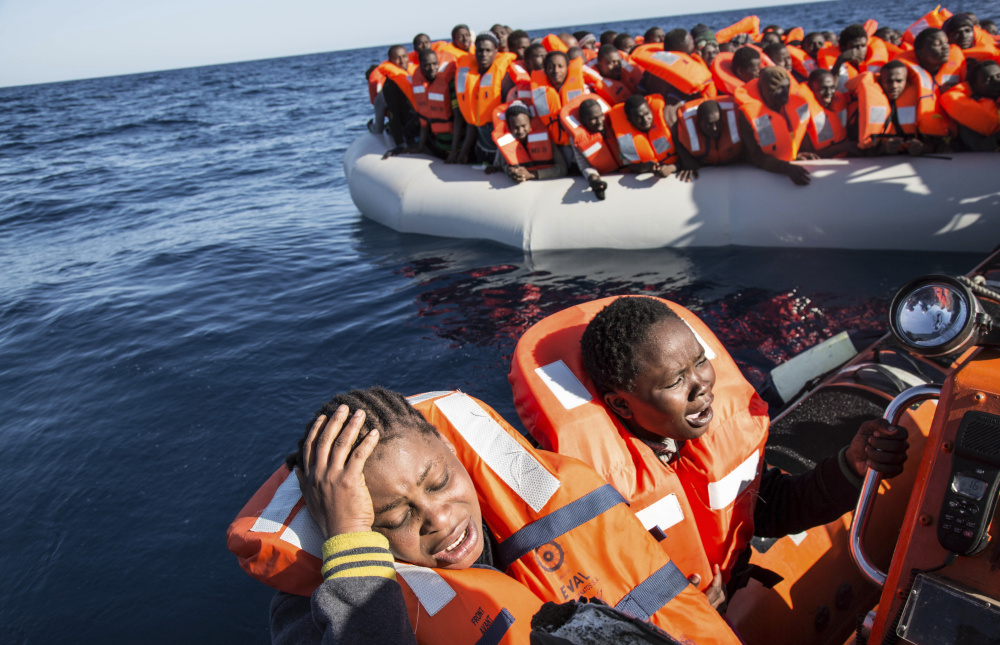VALLETTA, Malta — Tens of thousands of people seeking better lives are expected to trek across deserts and board unseaworthy boats in war-torn Libya this year in a desperate effort to reach European shores by way of Italy.
More than 181,000 people, most so-called “economic migrants” with little chance of being allowed to stay in Europe, tried to cross the central Mediterranean last year from Libya, Africa’s nearest stretch of coast to Italy. About 4,500 died or disappeared.
Hundreds already have taken to the sea this month, braving the winter weather. In the latest reminder of the journey’s perils, more than 100 people were missing off Libya’s coast over the weekend after a migrant boat sank.
Some European leaders are warning of a fresh migration crisis when sea waters warm again and more people choose to put their lives in the hands of smugglers.
“Come next spring, the number of people crossing over the Mediterranean will reach record levels,” predicted Malta Prime Minister Joseph Muscat, whose country holds the European Union’s presidency.
“The choice is trying to do something now, or meeting urgently in April, May…and try to do a deal then.”
The 28-nation EU already has a controversial deal to stem the flow of migrants from Turkey, which has agreed to try to stop the number of migrants leaving the country and to take back thousands more.
In exchange, Turkey is supposed to receive billions of euros, visa-free travel for its citizens, and fast-tracked EU membership talks.
Now, the EU wants to adapt this outsourcing pact to the African nations that migrants are leaving, despite criticism that the agreement sends asylum-seekers back to countries that could be unsafe for them.
The bottom line is that the Turkey deal works. The number of people arriving in the Greek islands plunged over the last year despite political wrangling over whether Turkey’s government was meeting the conditions for securing the visa-free travel incentive.
And EU nations have even fewer scruples about turning away migrants who take the central Mediterranean route to Italy, since they mostly are job seekers who would be ineligible for asylum.
Niger, Nigeria, Ethiopia, Mauritania, Mali and Chad are all on the EU’s radar, and dealing with them is proving expensive. But the bloc’s arrangement with Turkey has shown that the best way of stemming migrant flows is to stop people taking to the sea.
Libya and Egypt are the main migrant departure points, and pacts with them would probably have the biggest immediate impact.
Copy the Story LinkSend questions/comments to the editors.



Success. Please wait for the page to reload. If the page does not reload within 5 seconds, please refresh the page.
Enter your email and password to access comments.
Hi, to comment on stories you must . This profile is in addition to your subscription and website login.
Already have a commenting profile? .
Invalid username/password.
Please check your email to confirm and complete your registration.
Only subscribers are eligible to post comments. Please subscribe or login first for digital access. Here’s why.
Use the form below to reset your password. When you've submitted your account email, we will send an email with a reset code.